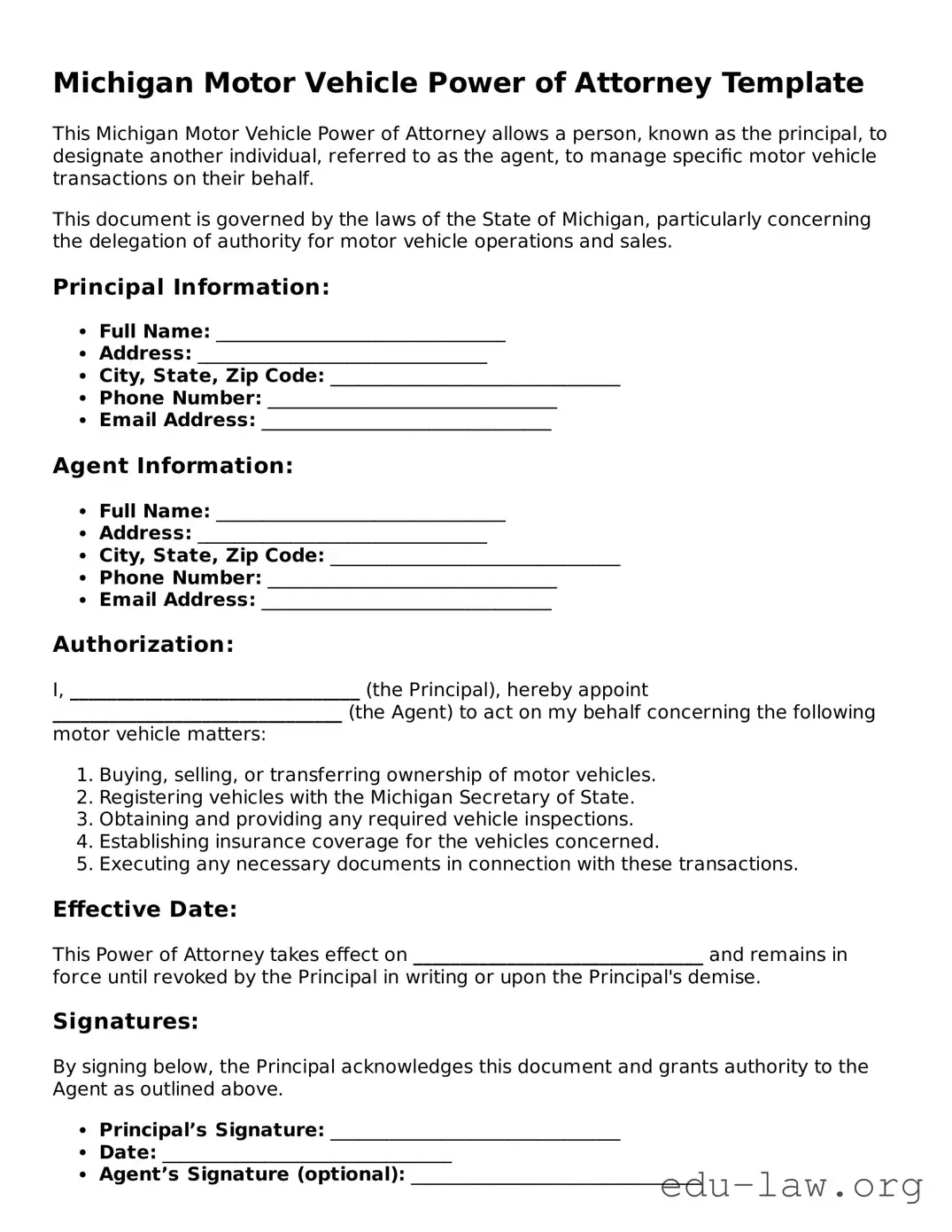What is a Michigan Motor Vehicle Power of Attorney form?
The Michigan Motor Vehicle Power of Attorney form is a legal document that allows one individual, known as the principal, to grant another individual, known as the agent, the authority to act on their behalf in matters relating to motor vehicles. This includes tasks such as signing over title documents, registering vehicles, and handling other vehicle-related paperwork.
Who needs a Motor Vehicle Power of Attorney in Michigan?
This form is useful for anyone who needs someone else to handle their vehicle transactions. For instance, if you're unable to visit the Secretary of State’s office due to illness or travel, you might consider granting power of attorney to a trusted family member or friend to manage these tasks for you.
How do I complete the Michigan Motor Vehicle Power of Attorney form?
Completing the form is straightforward. First, you’ll need to identify yourself as the principal and the person you’re designating as your agent. Be sure to provide their full name and address. Next, you must specify the powers you are granting. Typically, this involves checking the appropriate boxes and signing the document. It’s important to review the form carefully to ensure that all details are correct.
Is the Motor Vehicle Power of Attorney form valid in all states?
This form is specific to Michigan and its laws. While many states recognize powers of attorney, the exact requirements may vary. If you plan to use this form in another state, consult that state's regulations or seek legal advice to ensure it will be honored.
Do I need to notarize the Motor Vehicle Power of Attorney?
No, notarization is not required for the Michigan Motor Vehicle Power of Attorney form to be valid. However, having the document notarized can add an extra layer of legitimacy and safeguard against potential disputes about its validity in the future.
Can I revoke a Motor Vehicle Power of Attorney in Michigan?
Yes, you can revoke a Motor Vehicle Power of Attorney at any time as long as you are competent to do so. To revoke, simply create a written notice stating your intent to revoke the power of attorney and provide a copy to the agent. It’s wise to notify any institutions or parties that might have relied on the previous power of attorney to avoid confusion.
What should I do if my agent cannot act on my behalf?
If your designated agent is unable to fulfill their role—perhaps due to a personal emergency or change in circumstances—it’s important to have a backup plan. You can designate an alternate agent when completing the form, or you may need to revoke the existing power of attorney and create a new one with another agent as needed.
Are there any limitations on what my agent can do with the Motor Vehicle Power of Attorney?
Yes, while your agent has broad authority over vehicle-related transactions, you can set specific limitations in the form. For example, if you only want them to handle the sale of a vehicle and not any other transaction, you can specify that. This customization ensures your agent acts within the boundaries you establish.
